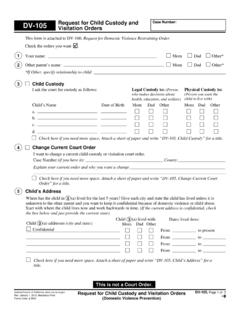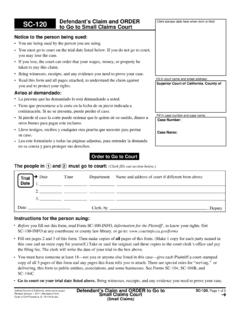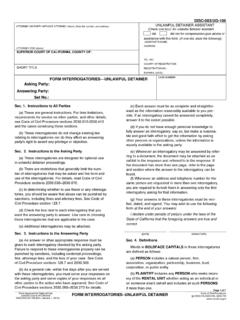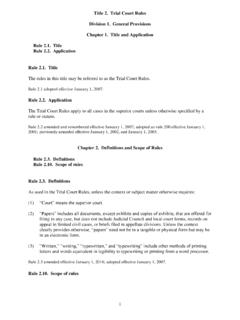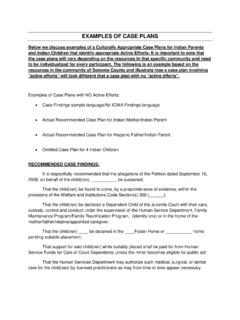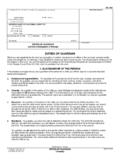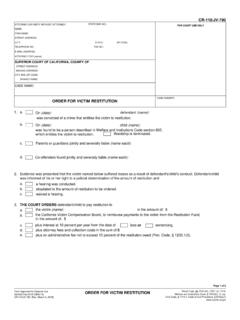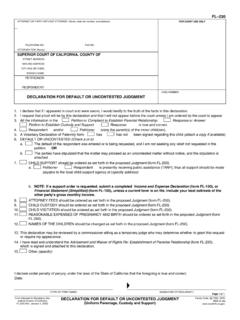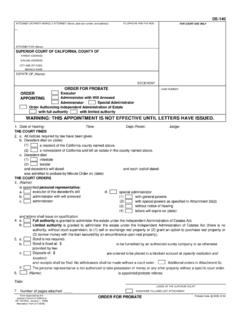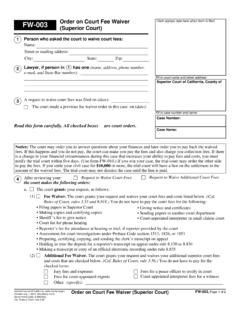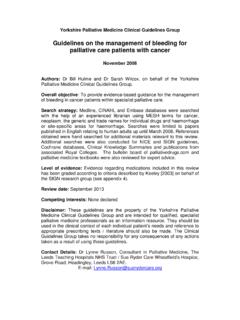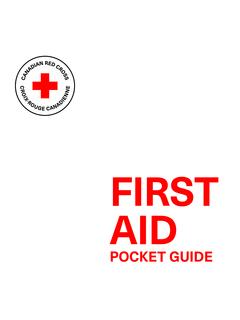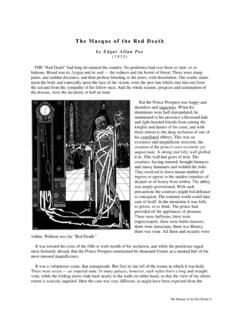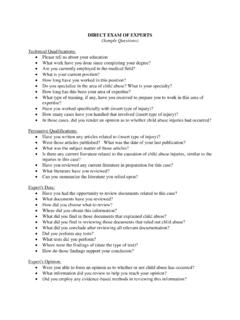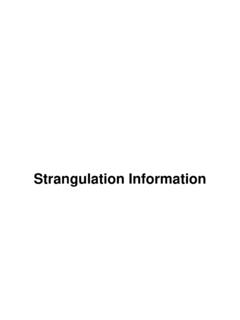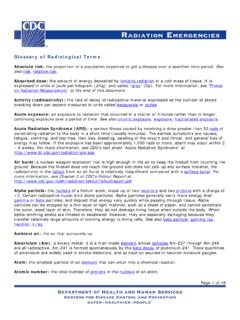Transcription of CROSS EXAM OF EXPERTS (Sample Questions) - California
1 CROSS EXAM OF EXPERTS . (Sample Questions). Challenge Credentials: You do not have a degree from an accredited university? You have not received any formal training in (state type of injury at issue in the case)? You are not a certified child abuse specialist? Your expertise is in (state current position) and not in child abuse? Your area of speciality does not treat (state type of injury in the case)? You are not a member of (state a relevant organization related to the type of injury in your case)? Are you familiar with (name a treatise, article or book that is relevant to the injury in your case)? Do you regard the (treatise, article or book) as one of authority in the field of child abuse? Do you agree with (read a passage from the treatise, article or book)? Challenge Impartiality: You have been retained to provide your opinion in this case? You have a large amount of fees outstanding that will be paid after your testimony today?
2 You testified in favor of (state opposing counsel or agency)? You agree with his/her position that child abuse has occurred non-accidentally? You have worked with opposing counse/agency on child abuse cases in the past? You are a consultant on a multi-disciplinary team to assess whether child abuse is accidental or non-accidental? Opposing counse/agency participates on this multi-disciplinary team? You have testified in the pastin support of opposing counsel/agency? You have only been an expert for opposing cousel/agency? You have not been an expert for (the other side)? Your testimony has always opined that child abuse was non-accidental? Challenge Positions: You have always testified that subdural hematoma is child abuse? Challenge Omissions: You didn't test for (state type of test that is common for the injury at issue)? You didn't review (state data that was overlooked)?
3 You didn't consider (state data tht was overlooked)? You didn't meet with the injured child? You didn't meet the caretakers? You only reviewed information provided by opposing counsel? Obtain Concessions/Challenge Assumptions: You agree that this injury could have been inflicted accidentally? Other conditions could have caused this injury? You agree that your opinion could change if more information was provided on the circumstances leading up to the injury? Your opinion is only as good as the information you received? If any information was incorrect it could change the basis of your opinion? If any information was missing it could change the basis of your opinion? Isn't it possible that numerous factors could influence your opinion? Intracranial Bleeding: This child fell a short distance? There were no fractures? There was no retinal hemorraghing?
4 There was no abusive bruises? Fractures: The injury does not show any callus formation? Posterior pareital fractures are common in children under the age of two? There was no injury to the brain? This would indicate the fracture is not severe? No fracture, on it's own, can be used to diagnose child abuse? Retinal Hemorraghes: Retinal hemorraghing is indicative of child abuse? This assumption is not always valid? Retinal hemorraghing from child abuse involves all layers of the retina? It is difficult to differentiate hemorraghes caused by accidential injury from those caused by abuse? Household accidental trauma could result in retinal hemorraghing? Subdural Hematoma/Shaken Baby Syndrome: Trivial head injury could cause subdural hematoma? Trivial head injury could cause retinal hemorraghing? There are no long bone injuries? There are no spiral fractures?
5 There are no skull fractures? There is no evidence of blunt trauma? There is no bruising? Subdural hematoma can occur from child birth? Subdural hematoma can occur from infants with external hydrocephalus? The relationship between retinal hemorraghing and subdural hematoma remain unproven for shaken baby syndrome? Evaluation of Child Abuse: The family has no history of child abuse? The family is an intact family? The family has good family support? The family has good social supports? The caretakers are emotionally stable? The child has not suffered any siginficant long term disabilities? The child is developmentally on track? The child presents as bonded to the parents? The family has been cooperative with the investigation? The fammily has followed up with treatment? The family is involved in services?
